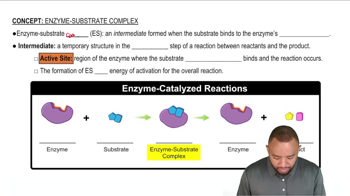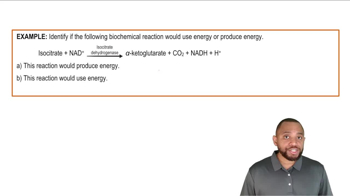What is the name of the class of enzymes that would catalyze each of the following reactions?
a. addition of water to a double bond
 Verified step by step guidance
Verified step by step guidance Verified video answer for a similar problem:
Verified video answer for a similar problem:



 :39m
:39mMaster Common Naming Concept 1 with a bite sized video explanation from Jules
Start learning